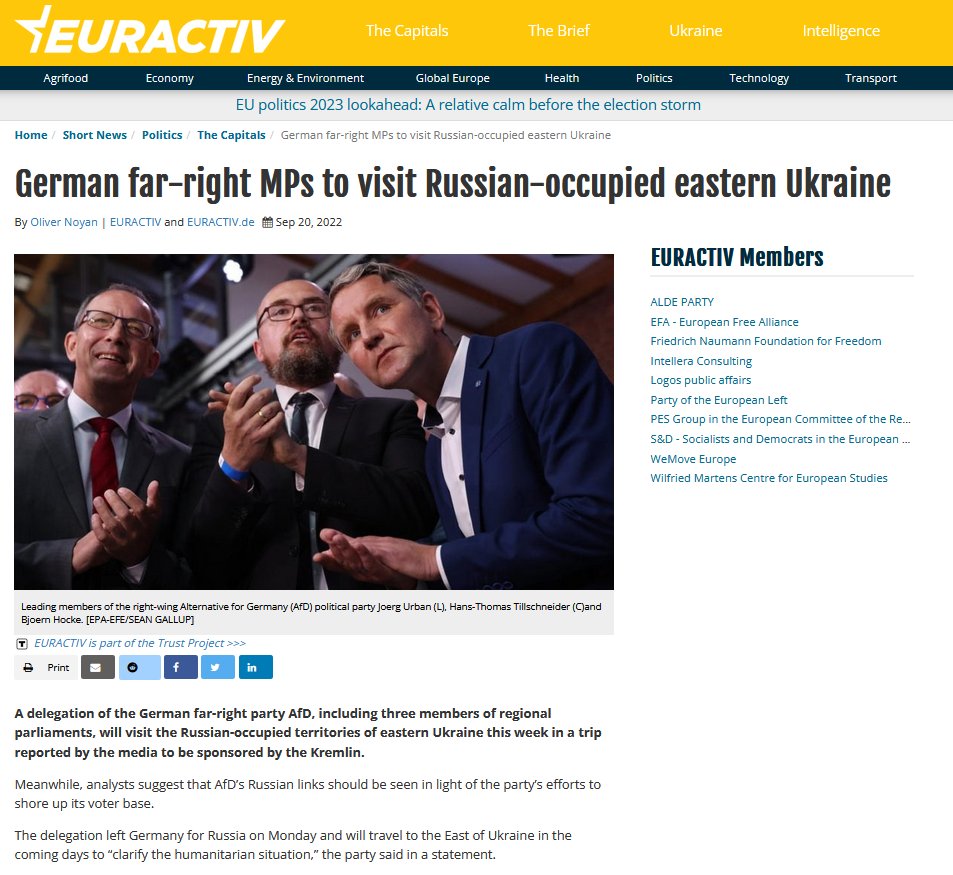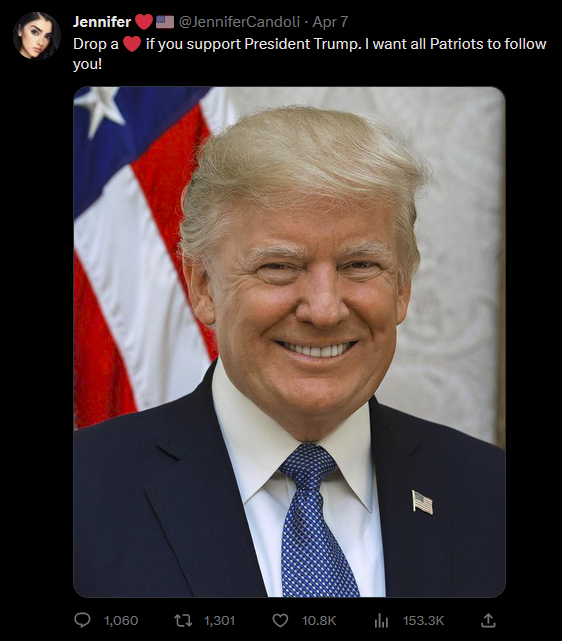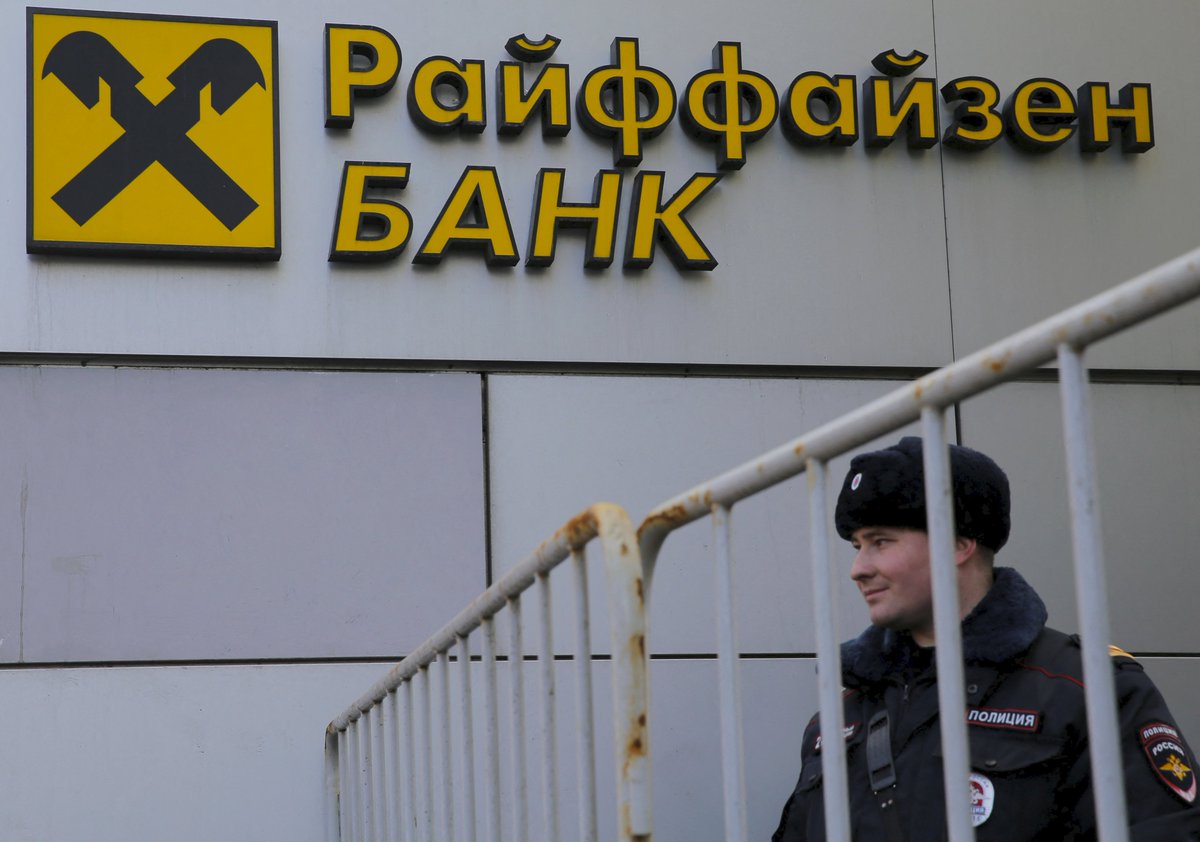In today's #vatniksoup, I'll introduce a Russian politician and economist, Sergey Glazyev. He's best-known for his long career in Russian politics, and for his leaked phone calls in regard to Russian meddling in Ukraine before, during and after the Revolution of Dignity.
1/24
1/24

Sergey was born in Zaporizhzhia, in the Ukrainian SSR. His father was Russian & mother Ukrainian. After getting his doctorate from the Moscow State University,he entered government service becoming the First Deputy Minister of External Economic Relations under Yegor Gaidar.
2/24
2/24

Gaidar was best-known for his economic reform known as "shock therapy" - with the help of US economists, Gaidar and his posse tried to transform the Soviet system into free market capitalism overnight. It was a disaster for everyone except the oligarchs and organized crime.
3/24
3/24
Glazyev was elected to State Duma in 1993, collaborating with now-eunuch Dmitry Rogozin. He was also involved in the short-lived nationalist party, the Congress of Russian Communities, whose main function was to work as a fake opposition for Boris Yeltsin.
4/24
4/24
He also ran for President in 2004, gaining 4,1% of the total vote. In 2007, Sergey announced that he'd leave Russian politics, arguing that Putin's authoritarianism had killed all opposition in the country, only to come back after Putin appointed him as a presidential aide.
5/24
5/24

In Mar, 2014 Sergey stated that the "entire crisis in Ukraine was orchestrated, provoked, and financed by American institutions in cooperation with their European partners," continuing that these institutions financed and trained the Ukrainian neo-Nazi movement.
6/24
6/24

A year before, in 2013, he called Ukraine's collective will to integrate into the EU as a "some kind of sick self-delusion". He called former President of Ukraine, Petro Poroshenko, a Nazi, stating that he was elected illegitimately.
As is tradition in Russia,...
7/24
As is tradition in Russia,...
7/24

..he said that "this Nazi government is bombing the largest region in Ukraine [referring to Donbas]". In Aug 2017, he claimed that Ukraine is "occupied territory", with only "servicemen of American aggressors" who receive instructions and funding from the American embassy.
8/24
8/24

But this is all basic level State Duma member/Kremlin propagandist rhetoric, what makes Glazyev different from others? In 2016 Ukrainian authorities published phone calls intercepted by the SBU between Glaziev and people who were directly involved in the pro-Russian...
9/24
9/24

...demonstrations in various cities around Ukraine, including Odessa and Kharkiv in 2014. As the Surkov leaks of 2016 provided evidence for the Russian meddling in the Donbas in 2014 and after, the Glazyev tapes proved it in various other areas.
10/24
10/24

Based on these leaks, Russia was planning to invade the so-called Novorossiya, consisting of large Ukrainian regions in the east and in the south of Ukraine, thus creating a land bridge to Crimea.
11/24
11/24

In the phone calls, Glazyev instructed the pro-Russian agents on how to increase the impact of the riots and how to eventually occupy administration buildings. He also instructed these agents on receiving funding for the insurrections.
12/24
12/24

From his phone call to "Prime Minister of Crimea", Sergey Aksyonov, we get a general idea how the process goes: throw out the "Banderovtsy" (Neo-Nazis) from the building council, gather executive authority and appeal Mr Putin for assistance against the "evil Nazis".
13/24
13/24

In the calls he also states that the riots must look as if they were grassroots with local residents as the main actors despite the funding coming from Russia. The leaks also offer damning evidence against Glazyev on so called 2014 Odessa clashes, in which 46 pro-Russian...
14/24
14/24

...and 2 pro-Ukrainian people died, and which pro-Russian propagandists like Aaron Maté have occasionally used as an evidence against "Ukrainian neo-Nazis". A call between State Duma member Konstantin Zatulin and Glazyev proved that Russia funded the riots both in ...
15/24
15/24
...Kharkiv and in Odessa. They also talk about Crimea, complaining how some pro-Russian politicians didn't show up to a demonstration. Glazyev commented on the situation as follows: "Holy fuck. We fed them for so long". Glazyev also funded the Cossacks, a pro-Russian ...
16/24
16/24
...militant group for partaking the riots in Crimea. Glazyev also talked about a "woman who will be buried soon." She had died during the riots, and he wanted to turn her funeral into a propaganda piece: "This has to all be done properly in the propaganda sense. So they...
17/24
17/24
..will be heroes and so on. So that people would be there.This event is very important."In one of the phone calls,Glazyev also referred to a certain "Slava",extremely likely referring to Vladislav Surkov who developed the strategic plan for the annexation of Crimea & Donbas.18/24 

In another call between Glazyev and Zatulin, they plan to create a pro-Russian Automaidan - a motorized response to the Ukrainian Automaidan movement. For this, they asked "the Surgeon", the founder of the biker club "Night Wolves" for assistance. Sergey also calls ...
19/24
19/24

.."the Surgeon" to help them with Zaporizhzhia:" The key city which needs support in Zaporizhzhia. Because without Zaporizhzhia,Crimea won’t survive, it’s not viable." Under Ukrainian control, Crimea got its energy and water from the mainland.
20/24
20/24

So, there it is: the Russian plan to steal a large chunk of Ukraine to create a land bridge between Russia and Crimea, to capture Odessa, Kharkiv, Zaporizhzhia, the Donbas... and all this revealed to us already back in 2016.
21/24
21/24

The plan can of course be originated way back to the end of the 90's, when Alexander Dugin laid the plans in his 1997 book Foundations of Geopolitics.
Recently Glazyev has become a prominent figure again, pushing for the BRICS collaboration and the abandonment of the USD.
22/24
Recently Glazyev has become a prominent figure again, pushing for the BRICS collaboration and the abandonment of the USD.
22/24

He's also commented on the collapse of the ruble, basically saying that the Central Bank of Russia knows what they're doing. But in regard to economic issues, how much trust should one put on a guy who was one of the leaders of the Russian "shock therapy" in the early...
23/24

23/24


...1990s, leading to the total collapse of the country's economic system?
In Mar 2014, right after the Russian annexation of Crimea, Glazyev became one of the first people to be sanctioned by the US.
24/24
In Mar 2014, right after the Russian annexation of Crimea, Glazyev became one of the first people to be sanctioned by the US.
24/24

Support my work: buymeacoffee.com/PKallioniemi
Past soups: vatniksoup.com
Related soups:
Revolution of Dignity:
"Genocide in Donbas":
Alexander Dugin:
Dmitry Rogozin:
Past soups: vatniksoup.com
Related soups:
Revolution of Dignity:
https://twitter.com/P_Kallioniemi/status/1635211581868085250
"Genocide in Donbas":
https://twitter.com/P_Kallioniemi/status/1611980244252258304
Alexander Dugin:
https://twitter.com/P_Kallioniemi/status/1597504449249181696
Dmitry Rogozin:
https://twitter.com/P_Kallioniemi/status/1606678474894319616
• • •
Missing some Tweet in this thread? You can try to
force a refresh

 Read on Twitter
Read on Twitter























